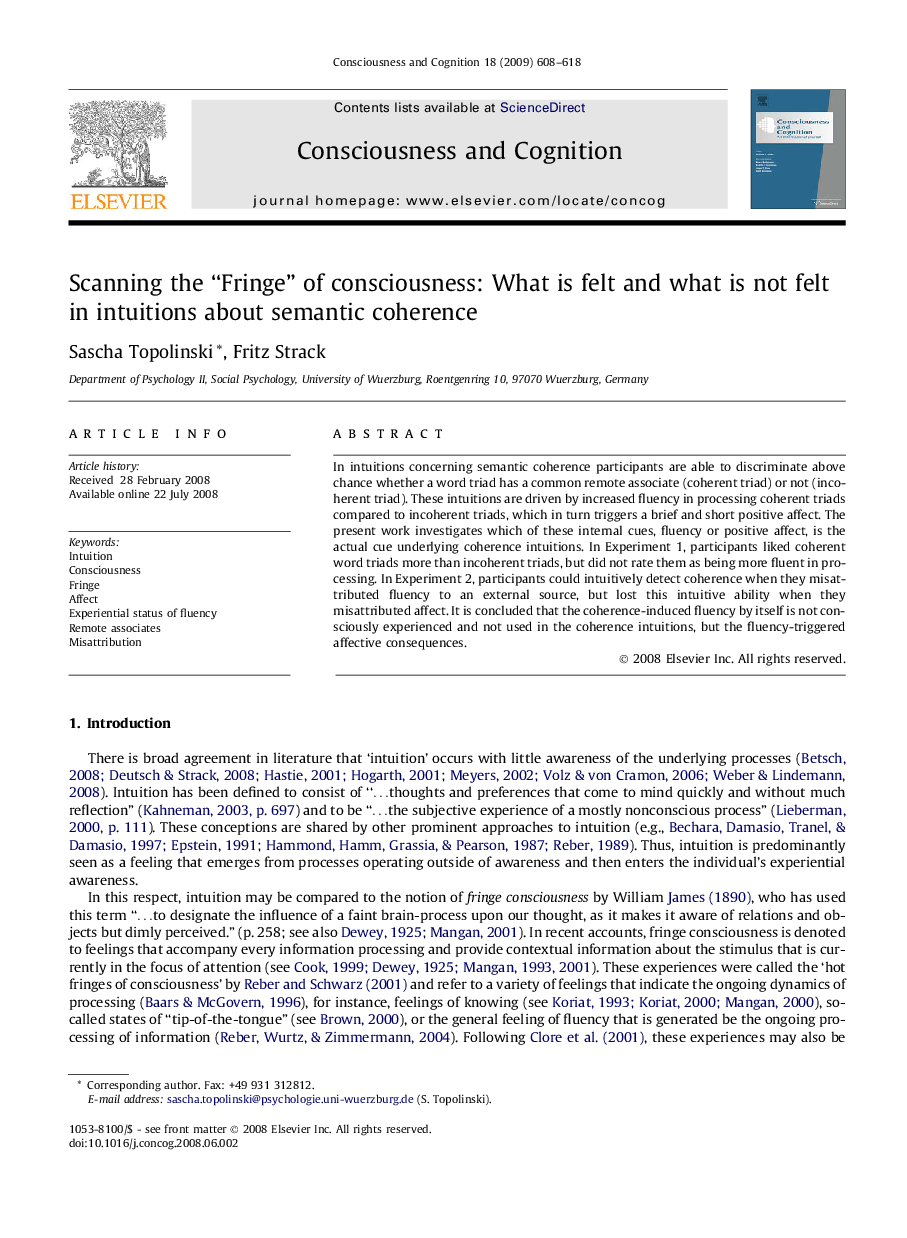| Article ID | Journal | Published Year | Pages | File Type |
|---|---|---|---|---|
| 927891 | Consciousness and Cognition | 2009 | 11 Pages |
In intuitions concerning semantic coherence participants are able to discriminate above chance whether a word triad has a common remote associate (coherent triad) or not (incoherent triad). These intuitions are driven by increased fluency in processing coherent triads compared to incoherent triads, which in turn triggers a brief and short positive affect. The present work investigates which of these internal cues, fluency or positive affect, is the actual cue underlying coherence intuitions. In Experiment 1, participants liked coherent word triads more than incoherent triads, but did not rate them as being more fluent in processing. In Experiment 2, participants could intuitively detect coherence when they misattributed fluency to an external source, but lost this intuitive ability when they misattributed affect. It is concluded that the coherence-induced fluency by itself is not consciously experienced and not used in the coherence intuitions, but the fluency-triggered affective consequences.
